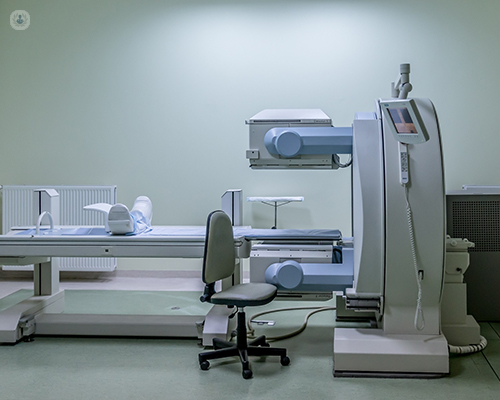Traumatic brain injuries: an in-depth guide
Written in association with:In her latest online article, renowned consultant in rehabilitation medicine Dr Piera Santullo answers the most frequently asked questions regarding traumatic brain injuries. Dr Santullo explains what happens to the brain after traumatic brain injuries, the possible symptoms and the diagnosis and treatment.

Why is important to see a physiatrist after traumatic brain injury
It is important to see a physiatrist after a traumatic brain injury (TBI) because they are medical specialists who are trained to help patients with physical, cognitive, and emotional challenges after a TBI. We can help manage the many different aspects of recovery from a TBI, including:
Physical rehabilitation: we can help with physical rehabilitation after a TBI, including improving mobility and strength, managing pain, and addressing any physical impairments or disabilities caused by the injury.
Cognitive rehabilitation: we can help with cognitive rehabilitation after a TBI, including improving memory, attention, and problem-solving skills, and helping patients manage any cognitive challenges caused by the injury.
Emotional and behavioural support: we can help with emotional and behavioural support after a TBI, including addressing depression, anxiety, and other mental health issues that may arise after the injury.
Medication management: we can help manage medications that may be necessary after a TBI, such as pain medications or medications to manage seizures.
Overall, seeing a physiatrist after a TBI can help improve a patient's quality of life and help them achieve the best possible outcome from their injury.
What happens to the brain after traumatic brain Injury?
Traumatic brain injury (TBI) occurs when the brain is subjected to a sudden impact or acceleration/deceleration within the skull, causing damage to the brain tissue. The effects of TBI can vary widely depending on the severity of the injury, the location of the injury in the brain, and the individual's overall health and recovery.
In general, TBI can cause a range of physical, cognitive, and emotional changes. Some of the potential effects of TBI on the brain include:
- Swelling: After a TBI, inflammation and swelling of the brain tissue can occur, which can cause further damage to nearby brain cells and increase pressure inside the skull.
- Bleeding: A TBI can cause bleeding within the brain tissue or in the spaces around the brain, which can also increase pressure inside the skull and cause additional damage to brain cells.
- Chemical changes: A TBI can disrupt the balance of chemicals in the brain, which can affect the brain's ability to communicate and process information.
- Axonal injury: The sudden acceleration/deceleration of the brain during a TBI can cause damage to the axons, which are the long, thin fibres that connect different parts of the brain. This can disrupt communication between different brain regions and affect cognitive and behavioural function.
- Cell death: Depending on the severity of the TBI, brain cells can die as a result of the injury.
The effects of TBI on the brain can vary widely depending on the severity and location of the injury, as well as the individual's overall health and recovery. Recovery from TBI is a complex process that can take time, and requires ongoing medical care and rehabilitation.
What are the possible symptoms of mild traumatic brain injury?
Mild traumatic brain injury (mTBI), also known as a concussion, is a type of brain injury that can occur after a blow or jolt to the head or body. The symptoms of mTBI can vary from person to person and may not always be immediately apparent. Common symptoms of mTBI may include:
- Headache
- Dizziness or loss of balance
- Nausea or vomiting
- Fatigue or drowsiness
- Confusion or feeling "foggy"
- Difficulty concentrating or remembering things
- Irritability or mood swings
- Sensitivity to light or sound
- Blurred vision or ringing in the ears
- Changes in sleep patterns, such as sleeping more or less than usual
How are they diagnosed?
To diagnose mTBI, it is required to carry out a physical examination and a detailed anamnesis. Cognitive tests to assess memory, attention, and other cognitive functions are also used. Imaging tests such as CT scans or MRIs may be ordered if there is a concern for more severe injury or if symptoms persist.

What are the possible treatments for traumatic brain injury?
The treatment of traumatic brain injury (TBI) depends on the severity of the injury, the location of the damage, and the individual's overall health. Treatment may include a combination of medications, surgery, and rehabilitation.
In the acute phase of TBI treatment, the primary goal is to stabilize the patient and prevent further damage to the brain. This may involve medications to control swelling, blood pressure, and seizures. In some cases, surgery may be necessary to remove blood clots or other sources of pressure on the brain.
Rehabilitation is a critical component of TBI treatment and may include physical, occupational, and speech therapy. Rehabilitation aims to help the patient regain function and independence, and may involve exercises to improve strength, coordination, and balance, as well as cognitive and behavioural therapies to address memory, attention, and emotional regulation.
Other treatments that may be used for TBI include nutritional support, pain management, and psychological counselling to help patients and their families cope with the emotional and psychological effects of the injury. The specific treatment plan will depend on the individual's needs and the severity of the TBI.
What are the possible treatments for traumatic brain injury?
There are several possible treatments for traumatic brain injury (TBI), and the specific treatment approach will depend on the severity of the injury and the specific symptoms that the patient is experiencing. Here are some of the possible treatments for TBI:
- Medications: Medications may be prescribed to manage symptoms such as pain, inflammation, seizures, and depression. For example, anti-inflammatory drugs may be used to reduce swelling in the brain, and anticonvulsant medications may be used to prevent seizures.
- Surgery: In some cases of severe TBI, surgery may be necessary to remove blood clots, repair skull fractures, or relieve pressure on the brain.
- Rehabilitation: Rehabilitation is an important part of the recovery process for patients with TBI. This may involve physical therapy, occupational therapy, speech therapy, and cognitive therapy to help patients regain function and independence.
- Assistive devices: Assistive devices such as wheelchairs, braces, and communication aids may be used to help patients with TBI perform daily activities and communicate more effectively.
- Experimental treatments: There are also some experimental treatments being studied for TBI, such as stem cell therapy and transcranial magnetic stimulation, which may help promote healing and improve function.
Overall, the treatment of TBI requires a multidisciplinary approach involving a team of healthcare professionals, including neurologists, neurosurgeons, rehabilitation specialists, and other specialists, to provide the best possible care for the patient. The specific treatment approach will depend on the severity of the injury and the specific symptoms that the patient is experiencing.
Can you live a normal life after a traumatic brain injury?
The effects of a traumatic brain injury (TBI) can vary widely depending on the severity of the injury, the location of the injury in the brain, and the individual's overall health and recovery.
Some people with mild TBIs may recover quickly and fully, and be able to return to their normal activities with little or no long-term effects. However, some people with more severe TBIs may experience a range of physical, cognitive, and emotional challenges that can significantly impact their daily life.

That being said, many people with TBI are able to live meaningful and fulfilling lives with the appropriate treatment and support. Rehabilitation and therapy can help individuals with TBI regain lost skills and learn new strategies to compensate for any ongoing challenges. Community-based programs can provide ongoing support and help individuals with TBI integrate back into their communities.
It's important to note that recovery from TBI is a complex process, and the outcomes can be unpredictable. Each person's experience will be unique, and the extent of recovery will depend on many factors. However, with the right care and support, many people are able to achieve a good quality of life after a traumatic brain injury.
Dr Piera Santullo is a leading consultant in rehabilitation medicine based in Birmingham, with over a decade of experience. If you would like to book a consultation with Dr Santullo you can do so today via her Top Doctors profile.



